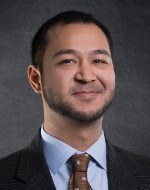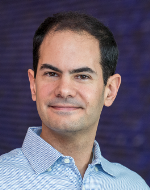Article first published online: August 6, 2015
- Francisco (Paco) Martorell, Assistant Professor, School of Education, University of California - Davis
- Cory Koedel, Associate Professor, Economics and Public Policy, University of Missouri - Columbia
- Rajeev Darolia, Assistant Professor, University of Missouri, Truman School of Public Affairs and College of Education
- Francisco Perez-Arce, Economist, RAND Corporation
- Katie Wilson, Ph.D. Candidate, Pardee RAND Graduate School
What was the genesis of the idea for your research/paper?
We were interested in understanding whether attending a for-profit college had any labor market benefits. This is a difficult question to answer because the people who attend for-profit colleges are different in many ways from those who do not go to college at all or who attend public non-profit colleges. We thought that a resume audit experiment would be a good way of getting around these issues.
What is the main conclusion that becomes evident from your research? (Or, what is your main takeaway?)
The main conclusion from the study is that resumes that list for-profit colleges do not generate any more employer interest than those that list either a public community college or no college at all. In other words, we found no evidence of an labor market benefits of for-profit college going.
What are some of the more interesting or surprising findings/conclusions did you find in the process of bringing this together?
We think our main conclusion is surprising. For-profit colleges are much more expensive than public community colleges (and of course also more costly than not going to college). Despite these costs, we found no labor market return to listing experience at a for-profit college on a job application.
Click here to view article
Authors' Bio

Francisco (Paco) Martorell joined the School as an assistant professor in July 2014. Martorell completed his PhD in economics at UC Berkeley. Prior to joining the School, he was an Economist at the RAND Corporation and was a professor at the Pardee RAND Graduate School since 2006. He has broad research interests in both higher education and K-12 policy.
Current projects cover areas including developmental education in colleges, the effects of grade retention, the returns to for-profit colleges, the impacts of school facility investments, and community college tuition subsidies. He also has conducted research on health care including studies examining the economic costs of dementia as well as research on the economic and educational consequences of military service.

Cory Koedel is an associate professor of economics and public policy at the University of Missouri–Columbia and a member of CALDER, the IES-sponsored research center. He is an associate editor for the Economics of Education Review and serves on the editorial boards for Educational Evaluation and Policy Analysis and Education Finance and Policy, and the board of directors for the Association for Education Finance and Policy.
Dr. Koedel’s research interests include teacher quality and compensation, curriculum evaluation, school choice and the efficacy of higher education institutions. In 2008, Dr. Koedel was awarded the Outstanding Dissertation Award from the American Educational Research Association (Division L), and in 2012 he received the Junior Scholar Award from the same group. He received his PhD in economics from the University of California, San Diego in 2007.

Rajeev Darolia is an Assistant Professor at the University of Missouri with appointments in the Truman School of Public Affairs and in the College of Education. He is also a Visiting Scholar at the Federal Reserve Bank of Philadelphia. His research interests include education policy and household finance, with recent projects focusing on higher education regulation, student borrowing, and government sponsored consumer credit programs.
Dr. Darolia received a PhD in Public Policy and Public Administration from George Washington University where he was recognized with the Outstanding Dissertation Award from the Association for Education Finance and Policy. He also holds a master’s degree in economics and a bachelor’s degree in finance.

Francisco Perez-Arce is an economist at the RAND Corporation where he conducts research in labor markets, education, and development economics. He is also a professor at the Pardee RAND Graduate School and directs the Center for Latin American Social Policy.
His research on higher education and labor markets has been published in the Journal of Labor Economics, Journal of Economic Economic Surveys and El Trimestre Economico. Dr. Perez-Arce received a Ph.D. in economics from Princeton University and a B.A. in economics from the Instituto Tecnologico Autonomo de Mexico.

Katie Wilson is a Ph.D. candidate at the Pardee RAND Graduate School. She has an M.A. in economics from the University of California, Los Angeles, and a B.A. in economics and international studies from Davidson College in North Carolina. Since graduating, Wilson has worked on randomized control trials in Madagascar, India, and Kenya, with the Jameel Poverty Action Lab and Innovations for Poverty Action.
She has also worked as a research assistant at the Federal Reserve Board and as a senior analyst at Econ One Research. Her interests include financial instruments, education, and labor and population in the developing world. Her dissertation research will focus on constraits to growth for women entrepreneurs in India.